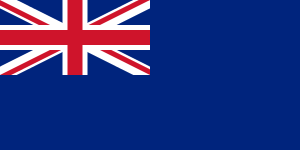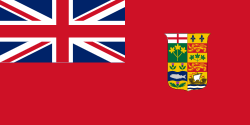List of shipwrecks in August 1914
The list of shipwrecks in August 1914 includes ships sunk, foundered, grounded, or otherwise lost during August 1914
3 August
5 August
6 August
7 August
8 August
9 August
12 August
13 August
14 August
List of shipwrecks: 14 August 1914
| Ship | Country | Description |
|---|
| Glenfarg |
 United Kingdom United Kingdom |
The cargo ship struck a rock and sank off Shirose, Japan. Her crew were rescued by Yawata Maru ( Japan).[8] Japan).[8] |
15 August
16 August
18 August
22 August
List of shipwrecks: 22 August 1914
| Ship | Country | Description |
|---|
| Alice H. |
 Netherlands Netherlands |
World War I: The cargo ship struck a mine and sank in the Baltic Sea off the Kõpu Lighthouse, Estonia.[12] |
| Capricornus |
 United Kingdom United Kingdom |
World War I: The trawler was scuttled in the North Sea 85 nautical miles (157 km) east by north of Spurn Point, Yorkshire by a Kaiserliche Marine torpedo boat. Her crew were taken as prisoners of war.[5] |
| Chr. Broberg |
 Denmark Denmark |
World War I: The cargo ship struck a mine and sank in the North Sea.[6][12] |
| Houtdik |
 Netherlands Netherlands |
World War I: The cargo ship struck a mine and sank in the Baltic Sea off the Kõpu Lighthouse.[12] |
| Marnay |
 United Kingdom United Kingdom |
World War I: The trawler was scuttled in the North Sea 85 nautical miles (157 km) east by north of Spurn Point by a Kaiserliche Marine torpedo boat. Her crew were taken as prisoners of war.[5] |
| Maryland |
 Denmark Denmark |
World War I: The cargo ship struck a mine and sank in the North Sea. Her crew were rescued.[12] |
| Skirbeck |
 United Kingdom United Kingdom |
World War I: The trawler was shelled and sunk in the North Sea by a Kaiserliche Marine cruiser. Her crew were taken as prisoners of war.[5] |
| Walrus |
 United Kingdom United Kingdom |
World War I: The trawler was shelled and sunk in the North Sea by a Kaiserliche Marine cruiser. Her crew were taken as prisoners of war.[5] |
| Wigtoft |
 United Kingdom United Kingdom |
World War I: The trawler was shelled and sunk in the North Sea by a Kaiserliche Marine cruiser. Her crew were taken as prisoners of war.[5] |
23 August
24 August
25 August
List of shipwrecks: 25 August 1914
| Ship | Country | Description |
|---|
| Kesteven |
 United Kingdom United Kingdom |
World War I: The trawler was scuttled in the North Sea 69 nautical miles (128 km) east north east of the Inner Dowsing Lightship ( United Kingdom) by a Kaiserliche Marine torpedo boat. Her crew were taken as prisoners of war.[5] United Kingdom) by a Kaiserliche Marine torpedo boat. Her crew were taken as prisoners of war.[5] |
| Lindsey |
 United Kingdom United Kingdom |
World War I: The trawler was scuttled in the North Sea 70 nautical miles (130 km) east north east of the Inner Dowsing Lightship ( United Kingdom) by a Kaiserliche Marine torpedo boat. Her crew were taken as prisoners of war.[5] United Kingdom) by a Kaiserliche Marine torpedo boat. Her crew were taken as prisoners of war.[5] |
| Porpoise |
 United Kingdom United Kingdom |
World War I: The trawler was scuttled in the North Sea 70 nautical miles (130 km) east north east of the Inner Dowsing Lightship ( United Kingdom) by a Kaiserliche Marine torpedo boat. Her crew were taken as prisoners of war.[5] United Kingdom) by a Kaiserliche Marine torpedo boat. Her crew were taken as prisoners of war.[5] |
26 August
27 August
28 August
29 August
List of shipwrecks: 29 August 1914
| Ship | Country | Description |
|---|
| Dargai |
 United Kingdom United Kingdom |
The cargo ship ran aground on the English Bank, in the Atlantic Ocean off Montevideo, Uruguay and was wrecked. Her crew were rescued.[20] |
30 August
31 August
Unknown date
List of shipwrecks: Unknown date 1914
| Ship | Country | Description |
|---|
| Prince Albert |
 Canada Canada |
The cargo ship was wrecked on the Butterworth Rocks, South Dundas Island, British Columbia. She was later salvaged, repaired and converted to a tug, re-entering service as J R Morgan.[22] |
References
- 1 2 3 "Major Warships Sunk in World War 1 1914". World War I. Retrieved 21 February 2013.
- ↑ "San Wilfrido (1)". Helderline. Retrieved 20 January 2013.
- 1 2 3 4 5 6 7 "BRITISH MERCHANT SHIPS LOST to ENEMY ACTION Part 1 of 3 - Years 1914, 1915, 1916 in date order". Naval History. Retrieved 20 January 2013.
- 1 2 "The fleets at sea". The Times (40668). London. 17 October 1914. col D-E, p. 5.
- 1 2 3 4 5 6 7 8 9 10 "BRITISH FISHING VESSELS LOST to ENEMY ACTION Part 1 of 2 - Years 1914, 1915, 1916 in date order". Naval History. Retrieved 27 January 2013.
- 1 2 3 4 "North Sea mines.". The Times (40619). London. 29 August 1914. col A, p. 5.
- ↑ "U 13". Uboat.net. Retrieved 24 September 2012.
- 1 2 "British steamer wrecked". The Times (40607). London. 17 August 1914. col D, p. 11.
- ↑ "Two British steamers reported sunk.". The Times (40614). London. 24 August 1914. col D, p. 2.
- 1 2 3 "The fleets at sea.". The Times (40747). London. 9 January 1915. col E-F, p. 6.
- 1 2 "Casualty reports". The Times (40627). London. 6 September 1914. col E, p. 4.
- 1 2 3 4 "Mines in open sea.". The Times (40614). London. 24 August 1914. col D, p. 2.
- ↑ "News in Brief". The Times (40616). London. 26 August 1914. col D, p. 11.
- ↑ "News in Brief". The Times (40618). London. 28 August 1914. col D, p. 11.
- 1 2 3 "Five vessels mined.". The Times (40618). London. 28 August 1914. col E, p. 8.
- ↑ "BRITISH NAVAL VESSELS LOST AT SEA Part 1 of 2 - Abadol (oiler) to Lynx (destroyer)". Naval History. Retrieved 2 February 2013.
- ↑ Historic England. "HMS CRATHIE (1002310)". PastScape. Retrieved 4 February 2013.
- ↑ "Drifters and Trawlers in RN Service)". GWPDA. Retrieved 19 February 2013.
- ↑ "Chivalry of British seamen.". The Times (40646). London. 25 September 1914. col B-C, p. 10.
- 1 2 "Casualty reports". The Times (40621). London. 31 August 1914. col A, p. 12.
- 1 2 "Steamer wrecked off Montivideo". The Times (40622). London. 1 September 1914. col A, p. 14.
- ↑ Heaton, K E (8 July 2004). "Shipwrecks in British Columbia's Waters". Retrieved 21 April 2011.
Shipwrecks 1914–18, by month |
|---|
|
| 1914 | |
|---|
|
| 1915 | |
|---|
|
| 1916 | |
|---|
|
| 1917 | |
|---|
|
| 1918 | |
|---|


.jpg)